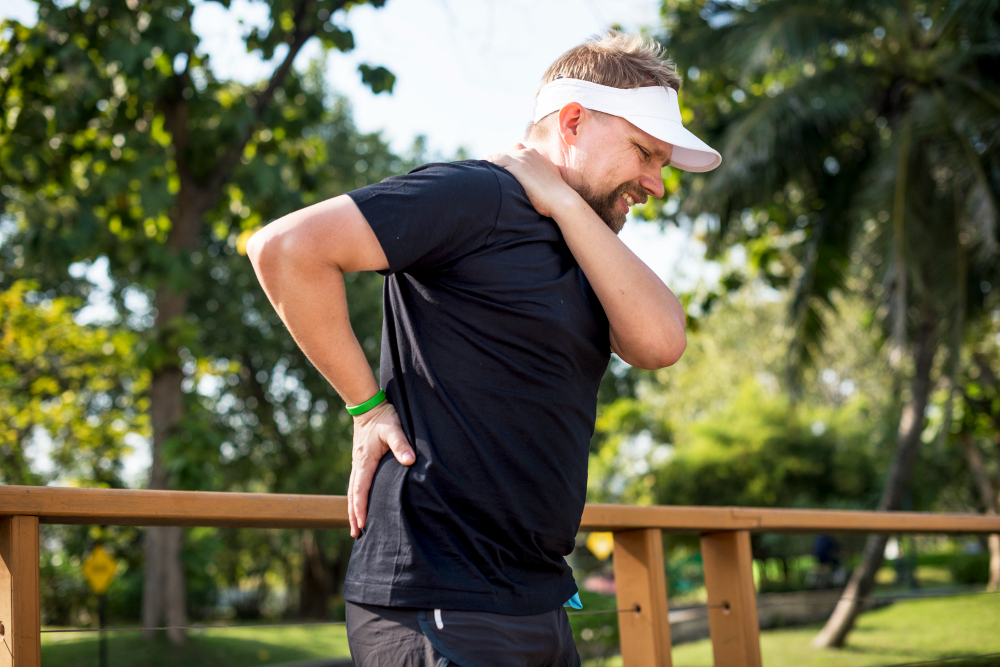A Guide to Managing Athletic Low Back Pain

Athletes of all levels know the agony of low back pain that can sideline them from the sports they love. Whether it's a dull ache or a sharp, debilitating twinge, the impact of back pain on your athletic pursuits cannot be underestimated. This guide dives into the strategies and insights that can help you not only manage, but also prevent future occurrences of low back pain, allowing you to pursue your athletic goals pain-free.
Understanding the Unique Strains of Athletic Low Back Pain
Low back pain in athletes can stem from various factors. It might be a result of overuse, which is common in activities that require a lot of running or jumping. It can also be due to an acute injury, such as a muscle strain or a ruptured disc, often incurred during improperly executed movements or accidents. Addressing the root cause is pivotal, and consulting a professional, like a physical therapist, is often the most strategic first step.
The Importance of Proactivity in Pain Management
When it comes to back pain, prevention is more manageable and less costly than treatment. This section will discuss the vital role that proactive measures play in managing back pain for athletes. It covers key aspects such as proper warm-ups, cooldowns, regular visits to specialists, and the vital role of strength training in back pain prevention.
Tailored Exercise Regimens for Back Pain Relief
Exercise can significantly alleviate back pain. However, generic workout routines aren’t always effective for all individuals. Thus, here we will discuss the importance of tailoring exercise regimens to fit the specific needs and abilities of each athlete.
Adopting Correct Posture and Body Mechanics
Your posture and the way you move during physical activities have a substantial impact on your back health. In this section, we will elaborate on the significance of maintaining the right posture and body mechanics to minimize strain on the lower back.
Ergonomics in Equipment and Training Environments
The equipment and environment in which you train can either support or hinder your efforts to maintain a pain-free back. We will provide a list of practical tips on how to ensure that ergonomics is always taken into account in your athletic endeavors.
The Role of Nutrition in Recovery
A nutritious diet can aid recovery and reduce the inflammation often associated with back pain. This part of the guide will outline the foods and nutrients that can be particularly beneficial in the context of athletic low back pain management.
Mindfulness and Stress Reduction
Stress and anxiety are intrinsically connected to back pain. Strategies like mindfulness, meditation, and yoga can be incredibly beneficial in reducing the impact of stress-related back pain. This section will explore various stress-reduction techniques suitable for athletes.
The Recovering Athlete's Lifestyle Adjustments
Sometimes, small adjustments in one's lifestyle can lead to significant improvements in back pain. This portion will provide practical lifestyle tips that can enhance overall comfort and aid recovery.
Professional Intervention and Treatment Options
When home remedies are not enough, it's crucial to seek professional intervention. From chiropractic care to physical therapy, we will detail the various treatment options available for managing athletic low back pain, and the benefits of each approach.
Building a Team: The Athlete, Coaches, and Medical Specialists
No athlete can fight back pain alone. This part of the guide will emphasize the value of building a support team, comprised of the athlete, coaches, and medical specialists, to address and manage back pain effectively.
Real-Life Success Stories and Their Takeaways
Readers often find inspiration and hope in the stories of athletes who have successfully battled back pain. In this section, we will present interviews and summaries of real-life success stories, along with the key takeaways from their experiences.
Closing Notes and Call to Action
This section will serve as a summary, emphasizing the main points and encouraging readers to take the necessary steps to incorporate the strategies discussed in the guide. Additionally, it will reinforce the call to action for those in Winter Springs, FL, to seek specialized physical therapy services to aid in their recovery. If you're looking for a physical therapist in Winter Springs, FL, contact B Physical Therapy today to schedule an appointment.